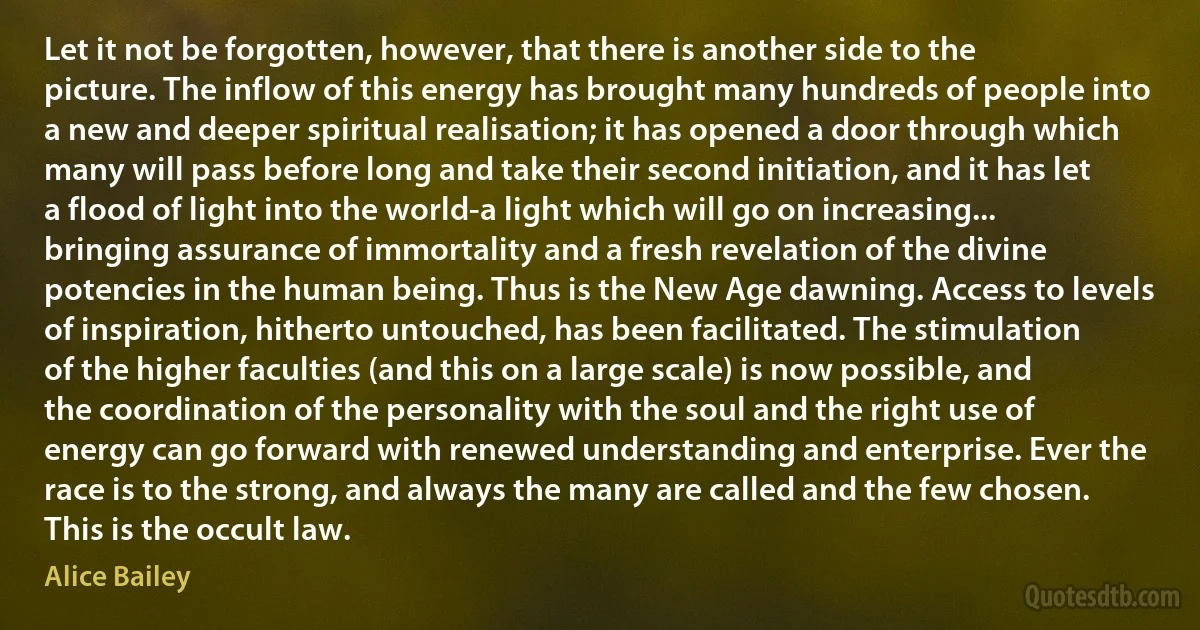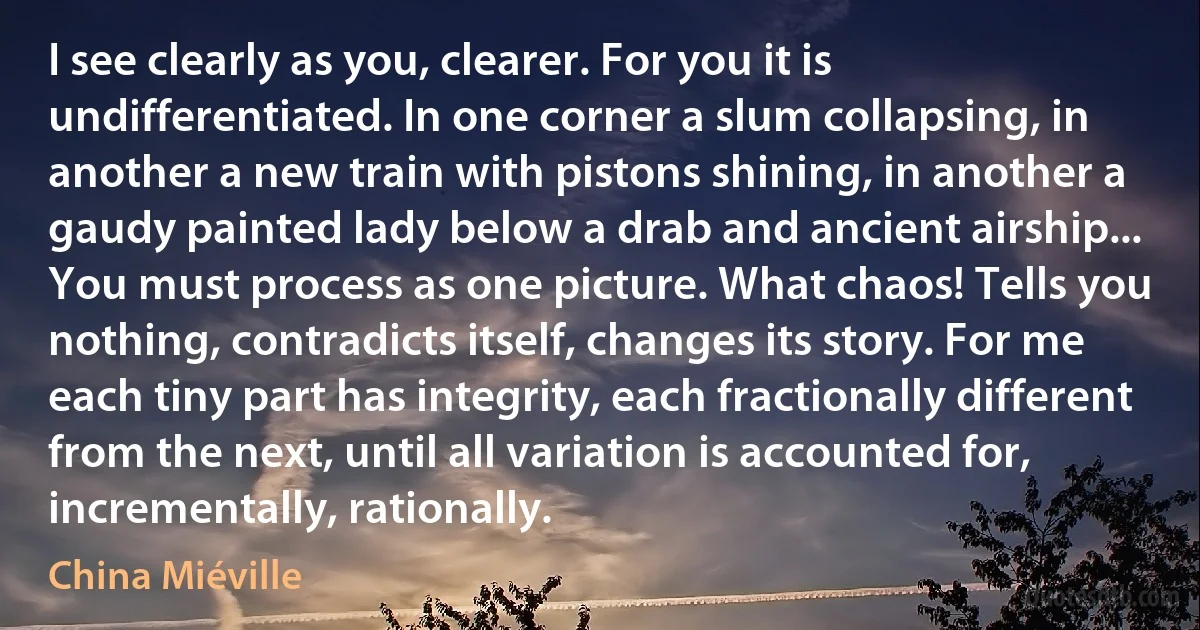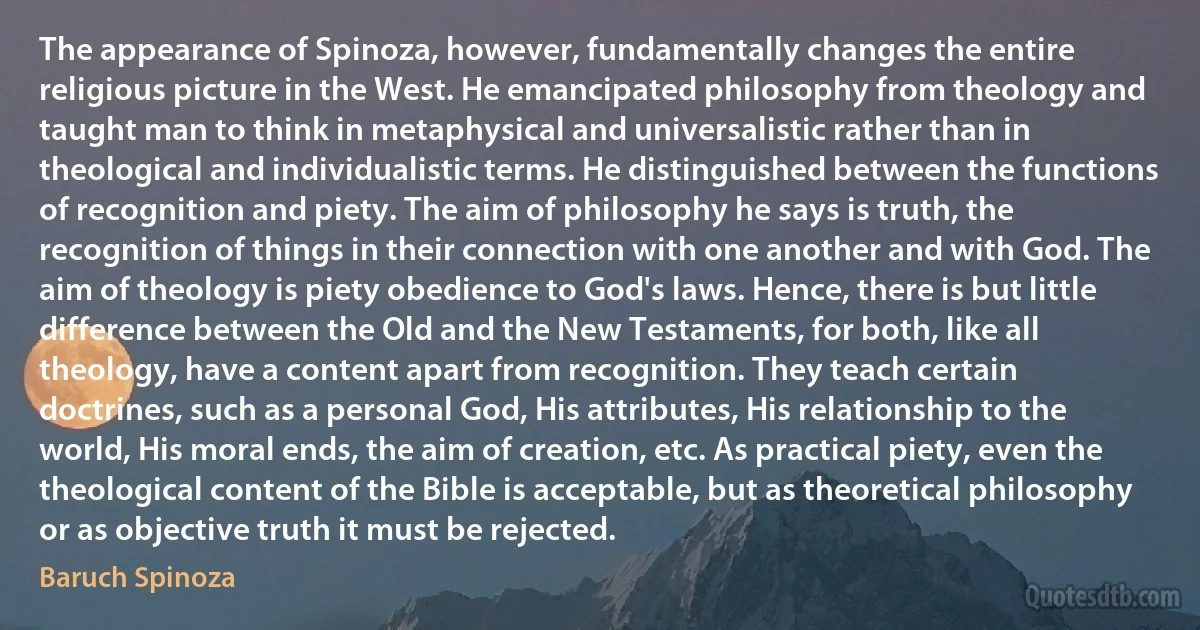Picture Quotes - page 88
From the Hindu perspective, each soul is divine. All religions are branches of one big tree. It doesn't matter what you call Him just as long as you call. Just as cinematic images appear to be real but are only combinations of light and shade, so is the universal variety a delusion. The planetary spheres, with their countless forms of life, are naught but figures in a cosmic motion picture. One's values are profoundly changed when he is finally convinced that creation is only a vast motion picture and that not in, but beyond, lies his own ultimate reality.

George Harrison
I cannot believe this is happening right now. [...] This is for my MySpace people and everybody who voted. The fans, y'all, I'm going out on tour with Brad Paisley and this is coming with me to every single [autograph] signing line so you can get a picture of the award you won for me. Thank you so much.

Taylor Swift
An enormous amount is happening globally-different kinds of struggle in different countries, in different societies. When you look at South Africa, there's enormous leadership by women. Black women in South Africa are maintaining and creating a structure. In that violence-ridden society, in the midst of revolution, they are creating childcare centers, soup kitchens, planting gardens, keeping things going on that human level. Now I don't think that's just women doing the service work of the world; those women are also leaders of their communities. We could talk about feminism in the Philippines, in Latin America, in the Caribbean, not a monolithic global movement but many movements, all over the world, contending within and against many different cultures. The United States movement is only a small part of the picture.

Adrienne Rich
... a translator may discern the general character of his author's style, and yet fail remarkably in the imitation of it. Unless he is possessed of the most correct taste, he will be in continual danger of presenting an exaggerated picture or a caricatura of his orginal. The distinction between good and bad writing is often of so very slender a nature, and the shadowing of difference so extremely delicate, that a very nice perception alone can at all times define the limits.

Alexander Fraser Tytler
Your body is just one in a mass of cuddly humanity. Become an internationalist and learn to respect all life. Make war on machines. And in particular the sterile machines of corporate death and the robots that guard them. The duty of a revolutionary is to make love and that means staying alive and free. That doesn't allow for cop-outs. Smoking dope and hanging up Che's picture is no more a commitment than drinking milk and collecting postage stamps. A revolution in consciousness is an empty high without a revolution in the distribution of power.

Abbie Hoffman
I felt that withdrawing from Syria was a huge mistake, because of both the continuing global threat of ISIS and the fact that Iran's substantial influence would undoubtedly grow. I had argued to Pompeo and Mattis as far back as June that we should end our piecemeal policy in Syria, looking at one province or area at a time (e.g., Manbij, Idlib, the southwest exclusion zone, etc.) and focus on the big picture. With most of the ISIS territorial caliphate gone (although the ISIS threat itself was far from eliminated) the big picture was stopping Iran. Now, however, if the US abandoned the Kurds, they would either have to ally with Assad against Turkey, which the Kurds rightly considered the greater threat (thereby enhancing Assad, Iran's proxy), or fight on alone, facing almost certain defeat, caught in the vise between Assad and Erdogan.

John R. Bolton
The organ banks would be supplied for years. Not only would the crew have a full supply, which they always did anyway, but there would be spare parts for exceptional servants of the regime; i.e., for civil servants such as Jesus Pietro and his men. Even the colonists would benefit. It was not at all unusual for the Hospital to treat a sick but deserving colonist if the medical supplies were sufficient. The Hospital treated everyone they could. It reminded the colonists that the crew ruled in their name and had their interests at heart.
And the Sons of Earth was dead. All but one man, and from his picture he wasn't old enough to be dangerous.
Nonetheless Jesus Pietro had his picture tacked to the Hospital bulletin boards and sent a copy to the newscast station with the warning that he was wanted for questioning.
It was not until dawn, when he was settling down to sleep, that he remembered who belonged to that face. Matthew Keller's nephew...

Larry Niven
[W]e are talking about economic and political union. We are posing a question about political entity, about nationhood-the thing for which men, if necessary, fight and, if necessary, die, and to preserve which men think no sacrifice too great. In respect of our nationhood, then, I say that we are not a part of the continent of Europe. The whole development and nature of our national identity and consciousness has been not merely separate from that of the countries of the Continent of Europe but actually antithetical; and, with the centuries, so far from growing together, our institutions and outlook have rather grown apart from those of our neighbours on the continent. In our history, both recent and earlier, the principal events which have placed their stamp upon our consciousness of who we are, were the very moments in which we have been alone, confronting a Europe which was lost or hostile. That is the picture, that is the folk memory, by which our nation has been formed.

Enoch Powell
Tenzing had been waiting patiently, but now, at my request, he unfurled the flags wrapped around his ice–axe and standing at the summit, held them above his head. Clad in all his bulky equipment and with the flags flapping furiously in the wind, he made a dramatic picture, and the thought drifted through my mind that this photograph should be a good one if it came out at all. I didn't worry about getting Tenzing to take a photograph of me - as far as I knew, he had never taken a photograph before, and the summit of Everest was hardly the place to show him how.

Edmund Hillary
The woman of City of Paris' [Delaunay painted in 1910 – 1912] sums up the [his] Cubist period.. ..'The Cardiff team' [he painted in 1913] is more significant in the expression of colour, less shattered. The yellow poster in the complete picture contrasts with the blues, greens and orange.

Robert Delaunay
"Not everyone is concerned with the deep future,” Manfred interrupts. "It's important! If we live or die, that doesn't matter-that's not the big picture. The big question is whether information originating in our light cone is preserved, or whether we're stuck in a lossy medium where our very existence counts for nothing. It's downright embarrassing to be a member of a species with such a profound lack of curiosity about its own future, especially when it affects us all personally! I mean, if there's going to come a time when there's nobody or nothing to remember us then what does –”
"Manfred?”
He stops in midsentence, his mouth open, staring dumbly.

Charles Stross
[After leaving the w:Exposition Universelle (1855) ].. .I went to the Courbet exposition. He has reduced the price of admission to ten sous. I stayed there alone for nearly one hour and discovered a masterpiece in the picture, they rejected [the jury of the official Salon exhibition in Paris]. I simply could not tear myself away from the sight of it.. ..In [Courbet's painting 'The Studio'] the planes are well understood. There is atmosphere, and in some passages the execution is really remarkable, especially the tights and hips of the nude model and the breasts.. .The only fault is that the picture, as he painted it, seems to contain an ambiguity. It looks as though there were a real sky in the middle of the painting. They [The Salon-jury] have rejected one of the most remarkable works of our time, but Courbet is not the man to be discouraged by a little thing like that.

Gustave Courbet
If I dared, I should say that your [ Camille Pissarro ] letter is imprinted with sadness. The picture business isn't going well; I fear that your morale may be colored a little grey, but I'm sure that it's only a passing phase.. .I imagine that you would be delighted with the country where I am now.. ..in L'Estaque, by the sea. I haven't been in Aix for a month. I've started two little motifs of the sea, for Monsieur [Victor] Chocquet [one of them became his later painting 'The Sea at L'Estaque', who had talked to me about it. It's like a playing card. Red roofs against the blue sea. If the weather turns favorable perhaps I'll be able to finish them off.

Paul Cézanne
It was because Cézanne could come at reality only through what he saw that he never invented purely abstract forms. Few great artists have depended more on the model. Every picture carried him a little further towards his goal-complete expression; and because it was not the making of pictures but the expression of his sense of the significance of form that he cared about, he lost interest in his work so soon as he had made it express as much as he had grasped. His own pictures were for Cézanne nothing but rungs in a ladder at the top of which would be complete expression. The whole of his later life was a climbing towards an ideal. For him every painting was a means, a step, a stick, a hold, a stepping-stone-something he was ready to discard as soon as it had served his purpose. He had no use for his own pictures. To him they were experiments. He tossed them into bushes, or left them in the open fields to be stumbling-blocks for a future race of luckless critics.

Paul Cézanne
The whole Renaissance tradition is antipathic to me. The hard-and-fast rules of perspective which it succeeded in imposing on art were a ghastly mistake which it has taken four centuries to redress; Paul Cézanne and after him Picasso and myself can take a lot of credit for this.. ..scientific perspective forces the objects in a picture to disappear away form the beholder instead of bringing them within his reach as painting should.

Paul Cézanne
Fine colour implies a unified relationship, in which each part is subordinate to the whole, and the transitions between them are felt to be as precious and beautiful as the colours themselves. In fact, the colours themselves must be continuously modified and broken as part of the transition. Ruskin said in his Elements of Drawing, "Give me some mud off a city crossing, some ochre out of a gravel-pit, a little whitening, and some coal dust, and I will paint you a luminous picture, if you give me time to gradate my mud, and subdue my dust." In many works by the greatest colourists - Rembrandt and Watteau are examples - there are very few identifiable colours.

Kenneth Clark
in East Hampton where Pollock lived .. ..if we [the couple then Helen Frankenthaler and Clement Greenberg arrived in mid-afternoon [for a weekend-stay with the Pollock's] the activity would be going out soberly, everyone, to look at Jackson's new pictures. He always had a very immaculate studio in that barn and would unroll one after another of what he'd been working on and each would walk around it on the floor and occasionally hold a picture up and talk about it. And then, say, if it was a Friday, we'd do the same thing with the same pictures Saturday. And then look again Sunday. And maybe something that didn't look good Friday afternoon had a double take on Sunday.

Jackson Pollock



